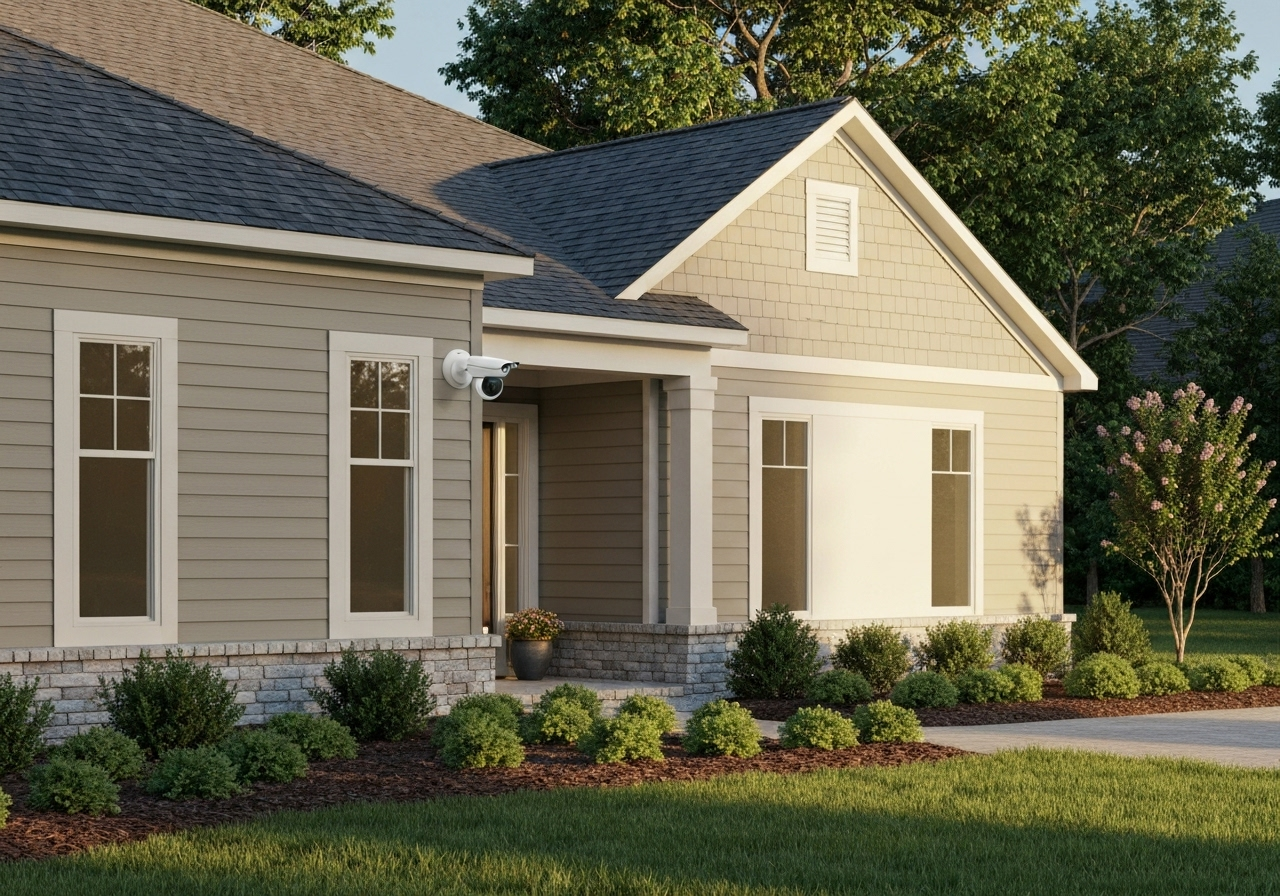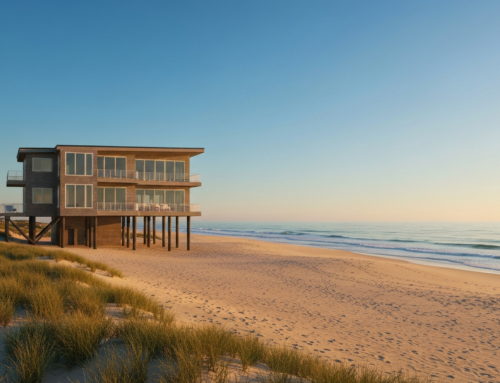Smart Investments for Your Home: Reducing Insurance Costs
Homeownership brings numerous joys and responsibilities, including safeguarding your property with adequate homeowners insurance. As insurance premiums continue to rise, many homeowners seek effective strategies to reduce their annual costs. One of the most impactful approaches is investing in strategic home upgrades. These enhancements not only improve your home’s value and safety but can also significantly lower your insurance bill by mitigating common risks that lead to claims. Insurers often reward homeowners for proactive measures that reduce the likelihood of damage or theft, translating directly into discounts on your policy.
A crucial first step in identifying valuable upgrades is understanding your home’s insurance history. Reviewing a Comprehensive Loss Underwriting Exchange (CLUE) report can highlight past claims and recurring issues, providing a roadmap for improvements that insurers will appreciate. For instance, if your home has a history of water damage claims, upgrading plumbing or installing leak detectors becomes a clear priority, demonstrating to your insurer that you are actively reducing future risks. This proactive stance, coupled with specific property enhancements, forms the basis for securing reduced premiums.
Discovering 10 Home Upgrades That Can Lower Your Insurance Bill
Making informed improvements to your home can lead to substantial savings on your homeowners insurance. Here are 10 Home Upgrades That Can Lower Your Insurance Bill:
- Advanced Home Security Systems: Installation of monitored security systems with features like cameras, motion detectors, and direct alerts to emergency services.
- Water Shutoff Devices/Leak Detectors: Systems that automatically cut off water supply or alert you to leaks, preventing costly water damage.
- Impact-Resistant Roofing: Upgrading to a roof designed to withstand high winds, hail, and other severe weather.
- Storm-Safe Windows and Doors: Installing impact-resistant glass or hurricane shutters to protect against wind and debris.
- Updated Electrical Systems: Replacing old or outdated wiring to reduce fire hazards.
- Modern Plumbing Systems: Upgrading old pipes and fixtures to prevent leaks and burst pipes.
- Energy-Efficient Features: Implementing green upgrades that meet certifications like LEED or Energy Star.
- Seismic Retrofitting: Strengthening your home’s foundation to better withstand earthquakes in prone areas.
- Motion-Detection Lights: While not always a direct discount, these deter theft and reduce risk.
- Well-Maintained Landscaping: Trimming trees and bushes to reduce damage risk and improve visibility around your home.
Enhancing Your Home’s Security: Protecting Against Theft and Damage
One of the most effective ways to lower your insurance premiums and gain peace of mind is by improving your home’s security. Homes with professionally monitored security systems are significantly less likely to be burglarized. Insurance companies recognize this reduced risk and often offer discounts ranging from 5% to 20% for homes equipped with robust security measures. These systems can include more than just alarms; modern security features often encompass centrally monitored systems that alert emergency personnel automatically in case of a break-in or fire, motion sensors, and even video doorbells. Installing a comprehensive home security system can offer not only financial savings but also crucial protection for your family and valuables.
Beyond traditional alarms, smart locks and environmental sensors contribute to a safer home. Smart locks enhance access control and allow remote monitoring, while water leak detectors can prevent major water damage claims, which are among the most frequent and expensive homeowners insurance claims. Some insurers offer additional savings if these devices are integrated into a larger security system or connected to a professional monitoring service, further highlighting the financial benefits of a technologically advanced and secure home.
Fortifying Against the Elements: Roofs, Windows, and Structural Integrity
Protecting your home from natural disasters is a critical factor in reducing insurance costs, especially in areas prone to severe weather. An upgraded roof, particularly one made with impact-resistant materials, can significantly lower premiums. Depending on your location, changing to a wind-resistant roof or adding hurricane clips can lead to discounts of up to 15% on your home insurance. Similarly, investing in storm-safe windows and doors—such as impact-resistant glass or hurricane shutters—can protect your home from wind and debris damage, potentially reducing the windstorm portion of your policy. For homeowners in coastal regions, understanding specific coverages, like those related to a hurricane deductible, becomes even more vital for comprehensive protection.
These structural improvements go beyond mere aesthetics; they directly reduce the potential for claims, making your home a lower risk in the eyes of insurers. Before undertaking major renovations like a roof replacement, it’s advisable to consult with your insurance agent. They can confirm eligibility for discounts and ensure that your chosen materials meet the necessary standards. Proactive fortification against common perils like wind, hail, and heavy rains can lead to substantial long-term savings and provide enhanced safety during inclement weather.
Modernizing Your Home’s Systems: Electrical and Plumbing Updates
Older homes often come with charm, but they can also harbor outdated electrical and plumbing systems that pose increased risks for fire and water damage. These risks often translate into higher insurance premiums. Updating your home’s critical infrastructure can alleviate these concerns and provide significant insurance savings.
Electrical System Upgrades
If your home still has knob-and-tube or aluminum wiring, upgrading to modern copper wiring is a wise investment. Not only does it enhance your home’s safety by drastically reducing fire hazards, but it can also qualify you for a discount of up to 5% on your homeowners insurance. Modern electrical systems can safely handle today’s increasing demand for power, preventing overloads and associated damages. Insurers view updated wiring as a clear sign of a well-maintained and lower-risk property.
Plumbing System Enhancements
Faulty or leaky pipes, old septic systems, and outdated water heaters are common culprits behind expensive water damage claims. Replacing old plumbing, especially lead or polybutylene pipes, with modern copper or PEX piping can significantly reduce the risk of leaks and burst pipes. Many insurers offer discounts for these plumbing upgrades because they directly mitigate one of the most common and costly types of claims. Installing a whole-house water shutoff valve further enhances protection by allowing for quick action in the event of a major leak, preventing extensive damage.
Embracing Energy Efficiency: Green Upgrades and Potential Discounts
In today’s environmentally conscious world, energy-efficient home upgrades are not only beneficial for the planet and your utility bills but can also lead to homeowners insurance discounts. Many insurance companies offer incentives for “green” homes that meet specific energy efficiency standards. These discounts reflect the reduced risk of certain types of claims, such as those related to outdated systems or structural inefficiencies.
One prominent pathway to such discounts is achieving certifications like the Leadership in Energy and Environmental Design (LEED) Green Building Rating System. Homes with LEED certification may qualify for around a 5% discount on their premiums. Even smaller upgrades, such as installing Energy Star-rated appliances or smart home devices like smart thermostats and water sensors, can contribute to savings. Smart thermostats, for instance, can detect unusual temperature changes that might indicate a fire or freezing pipes, offering an early warning system. Beyond insurance, homeowners can also explore federal incentives. The Energy Efficient Home Improvement Tax Credit offers savings on qualifying upgrades like heat pumps, windows, and insulation, making these investments even more attractive. Additionally, the Department of Energy provides a Home Energy Rebates Portal to search for local rebates on energy-efficient products.
Specialized Upgrades for Specific Risks: Seismic Retrofitting and More
Depending on your geographic location, your home may face unique natural disaster risks that require specialized upgrades. Addressing these specific vulnerabilities can not only protect your property but also result in significant insurance savings.
Seismic Retrofitting
For homes in earthquake-prone regions, seismic retrofitting is a critical investment. This process involves strengthening your home’s foundation with braces and bolts to improve its ability to withstand seismic activity. In California, for example, homeowners can save as much as 25% on their homeowners insurance premiums after completing seismic retrofitting. This specialized upgrade directly addresses a high-risk factor, making your property a safer bet for insurers.
Wildfire Protection
In areas susceptible to wildfires, strategic landscaping and fire-resistant building materials are essential. Creating a defensible space around your home by clearing brush, using fire-resistant roofing and siding, and installing mesh covers over vents can help protect against embers. While these measures may not always lead to direct premium discounts, they are crucial for maintaining coverage in high-risk zones and can prevent devastating losses, underscoring their immense value.
Indirect Savings: Landscaping and HVAC Maintenance
Not all home improvements lead to immediate, direct insurance discounts, but many can offer substantial indirect savings over time by reducing the likelihood and severity of future claims. These seemingly minor upgrades contribute to a safer, more resilient home environment.
Strategic Landscaping
Thoughtful landscaping can play a significant role in risk mitigation. Trimming large trees, especially those overhanging your home, reduces the risk of branches falling and causing damage during storms. Cutting back overgrown hedges and bushes can also deter burglars by eliminating potential hiding spots and improving visibility around your property. While insurers may not offer a direct “landscaping discount,” these efforts reduce the chances of property damage or theft, which can help you maintain a claim-free record and qualify for “loss-free discounts” in the long run.
HVAC System Maintenance
Maintaining or replacing your heating, ventilation, and air conditioning (HVAC) systems is another area for indirect savings. Dirty or malfunctioning HVAC systems can be fire hazards or lead to costly water leaks. Regular maintenance and timely upgrades prevent minor issues from escalating into major, expensive problems. By keeping these critical systems in good working order, you reduce the risk of unexpected incidents that would necessitate an insurance claim, thereby protecting your wallet from deductibles and potential premium increases.
How Your Upgrades Translate to Lower Premiums
The relationship between home upgrades and lower insurance premiums is rooted in risk assessment. Insurance companies evaluate your home’s vulnerability to common perils such as fire, theft, wind, and water damage. When you implement upgrades that demonstrably reduce these risks, your home becomes a less risky asset to insure, leading to potential discounts.
For example:
- Reduced Fire Risk: Updating old electrical wiring or installing fire sprinklers lowers the chance of fire-related claims.
- Enhanced Security: Monitored alarm systems and smart locks deter theft and vandalism, minimizing burglary claims.
- Storm Preparedness: Impact-resistant roofs and storm windows reduce damage from severe weather, lessening costly wind and hail claims.
- Water Damage Prevention: Modern plumbing and leak detection systems mitigate the risk of burst pipes and water leaks.
Each of these improvements demonstrates to your insurer that you are a proactive homeowner committed to protecting your property. This commitment often translates into credits or reduced premiums. It’s important to keep detailed records of all upgrades, including receipts and certifications, as your insurance agent will require proof to apply eligible discounts to your homeowners insurance policy. Regular communication with your agent ensures that all qualifying improvements are factored into your policy, maximizing your potential savings.
Partnering with Beach Insurance LLC: Maximizing Your Home Insurance Savings
Understanding the impact of home upgrades on your insurance premiums can be complex, but you don’t have to navigate it alone. Beach Insurance LLC is dedicated to helping homeowners in coastal and inland communities across South Carolina and North Carolina, including locations like Myrtle Beach, Ocean Isle Beach, and Concord, maximize their savings. We specialize in personal insurance, including comprehensive homeowners insurance solutions tailored to your specific needs.
Our expert team can review your current policy, discuss planned or recently completed home improvements, and identify all eligible discounts. Whether you’ve installed a new security system, upgraded your roof, or made your home more energy-efficient, we ensure these efforts are recognized by your insurer. Our goal is to provide personalized service and expert advice, helping you secure proper coverage at a competitive price. By partnering with Beach Insurance LLC, you can confidently invest in your home, knowing you’re also investing in a lower insurance bill and greater peace of mind.
Ready to maximize your home insurance savings? Contact Beach Insurance LLC today to discuss your home upgrades and get a personalized quote.






